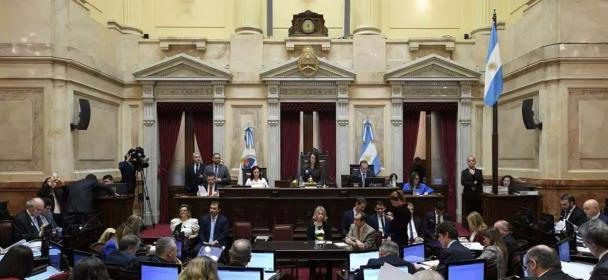BTN News: In a dramatic reversal, the national senators of Argentina decided to withdraw a significant pay raise they had approved just three days earlier. This decision came during a special session in the Argentine Congress on Thursday, following widespread backlash from the public, media, and even President Javier Milei. The increase in salaries, which had been agreed upon as part of a broader deal to raise wages for various legislative employees, would have doubled the current monthly earnings of the senators. However, facing severe criticism amid the country’s ongoing economic crisis, the lawmakers unanimously voted to cancel their own salary hikes, while maintaining the wage increases for other legislative workers.
Currently, Argentine senators earn a net salary of 4.5 million pesos per month, equivalent to approximately 4,700 U.S. dollars at the official exchange rate, or about 3,350 dollars on the black market. The initial decision to increase their compensation had aligned with the recent adjustments in the salaries of permanent Congressional staff. The proposed increase would have seen their monthly income surge to 9 million pesos, roughly 9,000 U.S. dollars officially, or 6,700 dollars in the informal currency market. This proposed doubling of their wages drew intense criticism, leading to Thursday’s unanimous vote where 65 senators agreed to reverse the salary increase.
The backlash was immediate and widespread. President Javier Milei, known for his outspoken views, took to X (formerly Twitter) to denounce the senators’ initial decision as a “betrayal of the Argentine people.” He condemned the salary increase in the strongest terms, describing it as a “shameful” act and warning that those responsible would face consequences in the upcoming elections. His criticism echoed the sentiments of many citizens who, grappling with Argentina’s severe economic challenges, expressed their anger and frustration on social media platforms.
Argentina is currently enduring a profound economic crisis, with soaring inflation and a rapidly rising cost of living. Although the government has made some progress in slowing the pace of inflation, the July inflation rate still stood at 4%, and the cumulative inflation for the first seven months of the year reached a staggering 87%. The country is also dealing with widespread poverty, with official figures indicating that 32% of households fall below the poverty line, representing 42% of the population.
The controversy over the senators’ pay comes amid broader concerns about the salaries of public officials in Argentina. Legislative and other government workers have long argued that their compensation lags behind that of officials in other branches of government. In response, a legislative proposal has been introduced to standardize the salaries across the three branches of government—Legislative, Judicial, and Executive—based on a benchmark of 20 times the minimum wage.
Senator Fernando Rejal of the Unión por la Patria party addressed the media, stating that all political blocs had agreed to discuss the appropriate salary levels for members of the three government branches in upcoming sessions. He also mentioned the inclusion of decentralized agencies in these discussions.
As a gesture of responsibility and in response to public outcry, the senators elected by popular vote have pledged to maintain their current salary levels without any further modifications until December 31st of this year. This move is seen as an attempt to regain public trust and demonstrate solidarity with the millions of Argentinians struggling with economic hardship.


